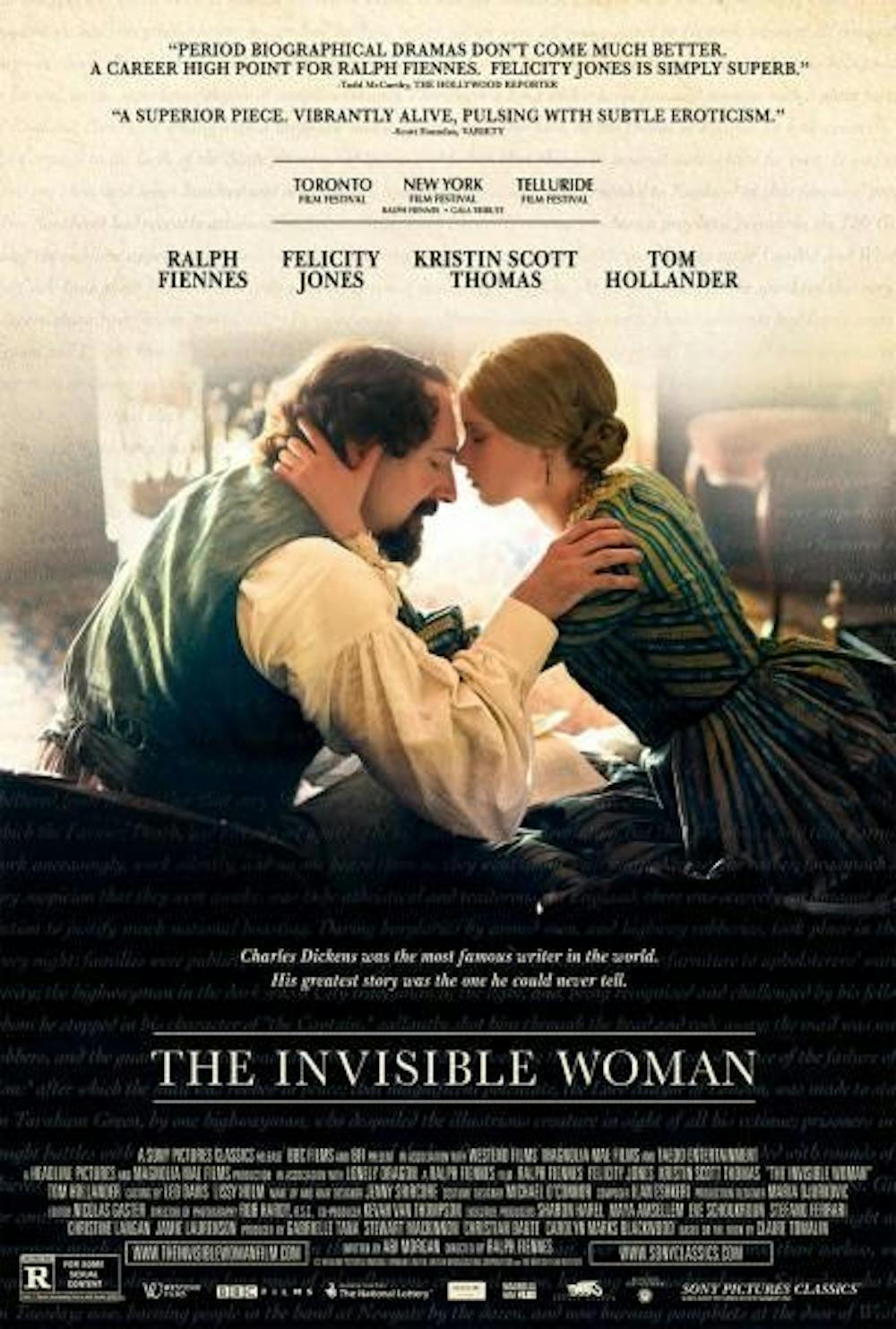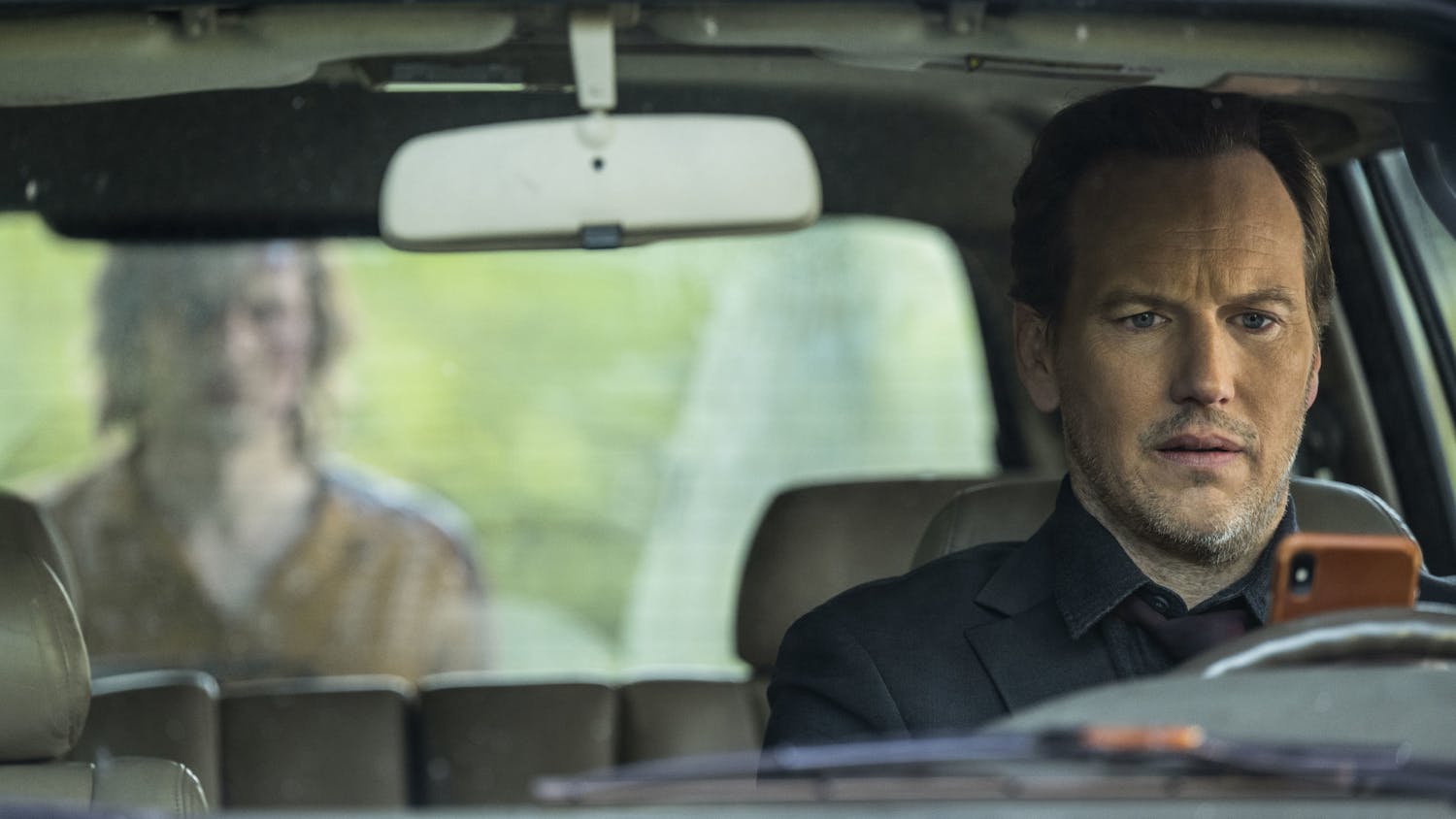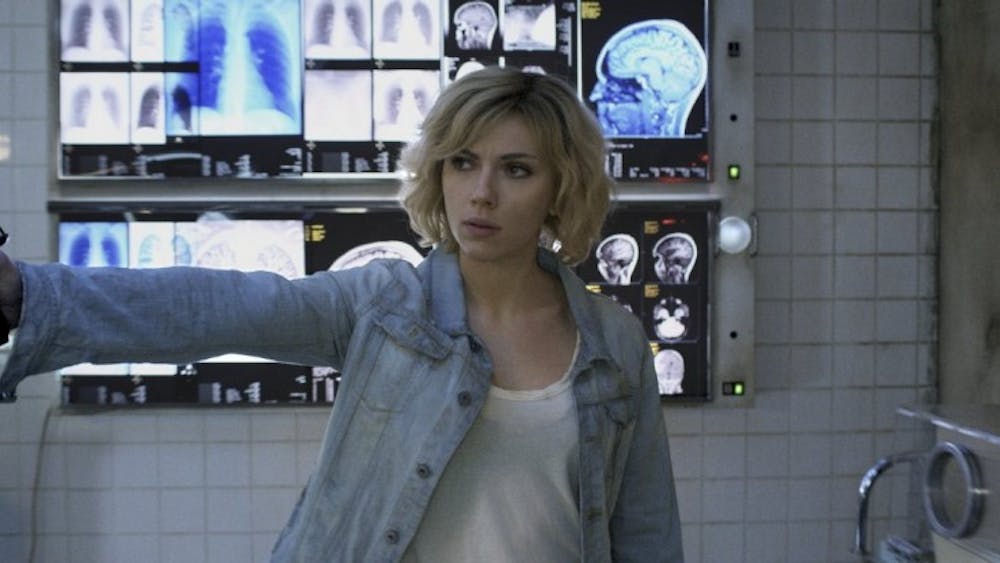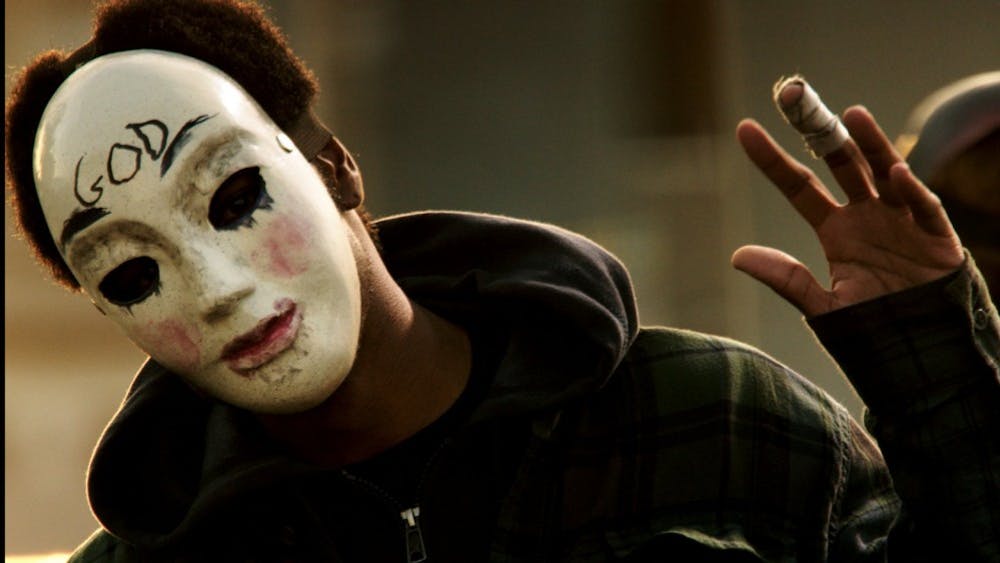Year 2013 was good for writers.
To begin with, Steve McQueen’s adaption of Solomon Northup’s “Twelve Years a Slave,” about a free man enslaved for his color, was released in the fall to near-universal critical acclaim. John Krokidas made his directorial debut with “Kill Your Darlings,” a somewhat premature homage to the Beat generation of writers of the 1960s including Allen Ginsberg, Jack Kerouac and William Burroughs.
Now, we have “The Invisible Woman,” the handiwork of director, actor, Shakespearean and former leader of the Death Eaters, Ralph Fiennes. Based upon the book by English literary biographer Claire Tomalin, the film details the life of Charles Dickens and his affair with the titular actress, Nelly Ternan.
Fiennes would appear to be working with very rich material. The amount of debauchery, drugs and general bawdiness that accompany writers’ lives makes modern celebrity sex tapes look like afternoon PBS.
When we first see Nelly, played by Felicity Jones, with sad eyes and a bottled, quivering emotion, like someone who has not yet come to terms with the bad decisions she made in the past, the year is 1883. It is 13 years after the death of Dickens, and Nelly, who is putting on a performance of the master’s play “No Thoroughfare,” is in 20 pounds of Victorian dress, walking across a beach so fast she kicks up her skirts like a rockette.
The allusion is to Wilkie Collin’s 1868 novel “The Moonstone,” in which a young servant who has fallen in love with an aristocrat saves her reputation by drowning herself in the sands of a beach. It’s a good motif and Fiennes comes back to it repeatedly in order to illustrate Nelly’s attempt to abandon the tragedy she
continuously relives.
This production of “No Thoroughfare” brings us back roughly 20 years earlier to Nelly’s own days on the stage, when she first worked with Dickens to premiere the drama.
The writer Dickens, played by Fiennes with finesse, is a wonderful and believable caricature of the real Charles. He talks the same way he writes — in walls of words — and smiles with a chipper madness, clearly pleased with his universal success and wanting everyone to be pleased for him as well.
Actors who play writers sometimes make the mistake of overdramatizing their source characters. Woody Allen’s 2011 “Midnight In Paris,” a romantic comedy that squeezes itself halfway in modern society, halfway in the 1920s Lost Generation of writers, gives Earnest Hemingway too much eloquence and Scott Fitzgerald too much dignity. The viewer gains the familiar perspective but loses the truth — these men lived much of their lives in solitude and were probably not the most charming cocktail companions.
Fiennes’s Dickens deviates between celebrity and truant, but never quite manages to escape life’s banalities. One day in the life of the author has Dickens peeing, shuffling through story proofs and stumbling in on his naked wife. This is a success.
However, what ultimately works best, and worst, for the film is the viewer never clearly understands why Dickens chooses to elope with Nelly. She’s younger and prettier than his wife, and does everything but squeal that she’s his number one fan — which is, for the master, perhaps worth risking a reputation over.
But when they talk about love or spill the tragedies of their early lives, it’s not believable.
For a relationship that lasted 10 years, the little depth that it’s given is shocking. In fact, most of the film is not even about the affair, but about its lead up and aftermath.
When it does end, hazily, unsurely, the closure provides no resolution because the whole relationship was never very believable. There are approximately two scenes to illustrate the relationship. This is a problem because it provides no substance for the tortured Nelly we see on the beach 13 years later. The bildungsroman we’re supposed to read in Nelly’s affair is there, only without the bildungs.
With Tom Hollander as Wilkie Collins, Dickens’s faithful lackey, “The Invisible Woman” is a portrait of a writer’s secret life that makes up for its lack of substance through scenic beauty and compelling performances by Fiennes and Jones.
The film wants us to believe the life we see is not the life that’s led, but in aspiring to portray Dickens like one of his heroes — a redeeming Sydney Carton, a victorious John Harmon — it never gets beyond second-rate.
'The Invisible Woman'

Get stories like this in your inbox
Subscribe





